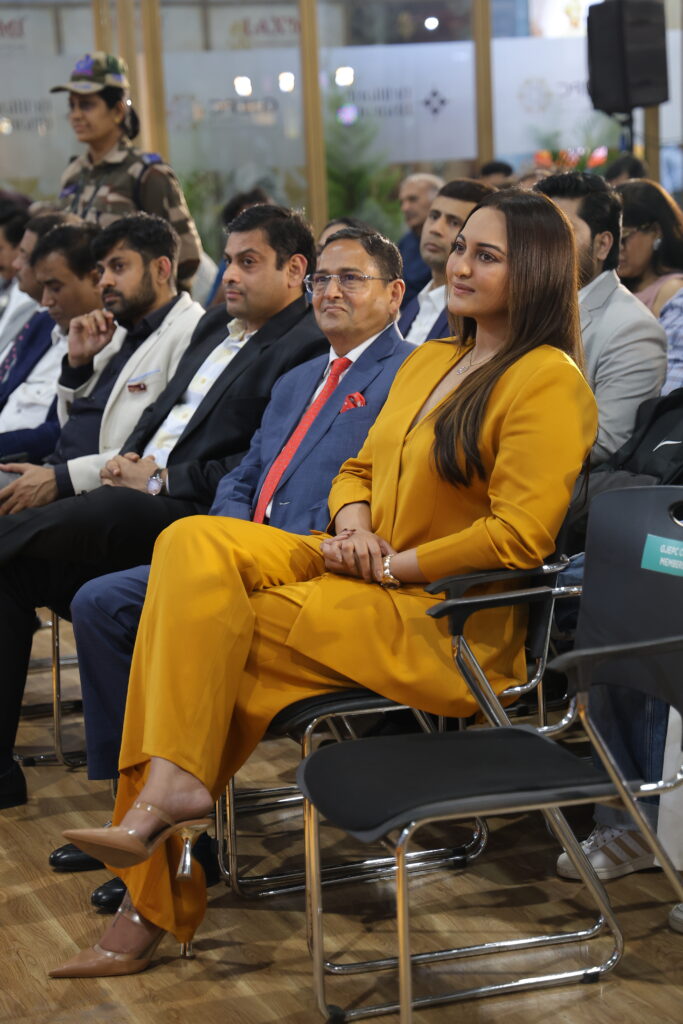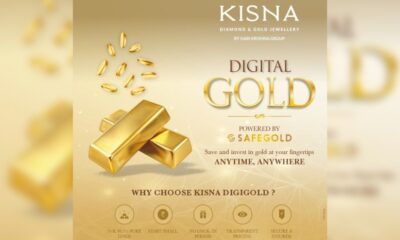DiamondBuzz
CRISIL RATINGS: Diamond Exports dip ~10% this fiscal as tariffs take effect

The 10% additional tariff levied by the US, which accounts for nearly a third of Indian natural diamond exports, will exacerbate the impact on Indian diamantaires from already-subdued demand and intensifying competition from lab-grown diamonds (LGDs), which closely resemble natural diamonds and cost much less. In the milieu, export revenues of diamantaires will decline ~8-10% in fiscal 2026.
That said, calibrated inventory management across the value chain will support realisations, thus helping reduce the decline in export revenues, and limit the erosion of operating margins, helping contain the players’ financial leverage and credit metrics.
A Crisil Ratings analysis of 43 diamantaires, accounting for nearly one-fourth of the industry revenues, indicates as much.
In fiscal 2025, the export volumes of natural diamonds remained constrained by lower demand from China and competition from LGD in the US. Although polishers pushed sales in the fourth quarter to avoid tariffs and price erosion was limited, revenues from natural diamond exports fell 17% to ~$13.3 billion.

Says Rahul Guha, Senior Director, Crisil Ratings, “This fiscal, realisations on natural diamonds are poised to rebound 3-4% amid limited inventory across the value chain as diamantaires are aligning their rough purchases with visibility in sales of polished diamonds. Additionally, production cuts by miners will curtail price erosion. This contrasts with LGD, whose prices may reduce from a tenth of the price of natural diamonds last fiscal to a twelfth in the current fiscal, resulting in a wider price gap between natural diamonds and LGD.”
The rising price gap, in turn, could shave a further 12-14% off natural diamond export volumes, marking a third consecutive year of weak demand after an aggregate degrowth of 32% in the last two fiscals. That will make it difficult for the natural diamond polishers to pass on any tariff-led price hikes to customers. For the record, India will remain the primary port of call for polishing diamonds.
Says Himank Sharma, Director, Crisil Ratings, “Natural diamond polishers, traditionally operating at thin margins of 4-5%, will have limited ability to absorb the tariff-induced price rise. As a result, miners and retailers may need to step in to absorb some of the price shocks. Consequently, we believe the operating margins of polishers may dip 20-30 basis points to 4.3-4.5% this fiscal.”

Credit profiles of diamantaires might witness some working capital respite as weak demand will lead to a further 5-7% cut in inventory levels across the value chain (after a 10-15% decline last fiscal). This will limit the need for debt-funded working capital, although receivables from export customers will remain monitorable amid tepid demand, geopolitical issues and global uncertainties.
As a result, diamantaires’ financial leverage – total outside liabilities to adjusted networth – and interest coverage will remain rangebound at ~0.8 time and ~2.5 times, respectively, this fiscal.
All said, slowing demand for natural diamonds in key geographies, intensifying competition from LGDs, potential revisions in tariffs and rising geopolitical tensions will bear watching.
DiamondBuzz
De Beers Group Launches “Heera Hai Aapke Liye” Program at IIJS Bharat Signature to Revolutionize Natural Diamond Accessibility in India

De Beers Group, the world’s leading diamond company, marked a significant milestone in the Indian jewellery landscape with the official launch of the “Heera Hai Aapke Liye” program at IIJS Signature. The star-studded event featured actress Sonakshi Sinha, who joined Shweta Harit, Global Senior Vice President of De Beers Group and CEO of Forevermark, to unveil an initiative dedicated to making natural diamonds an integral part of daily life for the modern Indian consumer.



The “Heera Hai Aapke Liye” (Diamonds are for You) program is strategically designed to promote natural diamonds by raising awareness, boosting market visibility,and creating a seamless connection between retailers and consumers. With a focus on modern designs and attractive price points, the program also lets local retailers use De Beers Group campaigns as their own—second-piercing earrings, ‘Bestie’ bracelets, and ‘Intention’ pendants. It positions diamonds as a lifestyle choice for self-expression and daily wear.

Speaking at the launch, Shweta Harit, Global Senior Vice President of De Beers Group and CEO of Forevermark, detailed the evolution of the brand’s storytelling, stating, “De Beers Group has a rich legacy of creating iconic ritual campaigns that have shaped how the world perceives diamonds. With ‘Heera Hai Aapke Liye,’ program we are evolving that narrative for the Indian market to another level.
We are not just selling jewellery, we are making natural diamonds more accessible and desirable in India. Our goal is to empower retailers through INDRA (Indian Natural Diamond Retailer Alliance) to ensure that every ‘First Diamond’ journey is as credible as it is beautiful.”

Speaking on the occasion, Kirit Bhansali, Chairman, Gem & Jewellery Export Promotion Council (GJEPC), said, “IIJS has always been a powerful platform for shaping the future of India’s gem and jewellery industry, and the launch of ‘Heera Hai Aapke Liye’ at IIJS Signature reinforces that role. GJEPC is proud to partner with De Beers Group on the INDRA (Indian Natural Diamond Retailer Alliance) project, which is a critical step towards strengthening domestic demand for natural diamonds.
By empowering retailers, enhancing consumer confidence, and expanding access across metros and Tier 2 markets, this initiative aligns perfectly with our vision to grow the natural diamond category sustainably within India.”
The program ‘Heera Hai Aapke Liye’, rests on few strategic pillars aimed at industry growth and scalability:
- Stocking & New Consumer Opportunity: Identifying gold wholesalers and distributors across 15–20 cities to focus on a first-phase target of 500 retailers.
- Retailer Advantage: Providing a “Design Advantage” and strict “Product Hygiene,” backed by a clear buy-back policy and robust training and marketing support via the INDRA alliance.
- Heera Hai Aapke Liye is robust entry-level product kit featuring earrings, bangles, bracelets, etc supported by exclusive visual merchandising (VM) for display.
- Growth and Scalability: A PAN-India reach strategy designed to unlock new business opportunities for both manufacturers and retailers.


As India continues to grow as the world’s second-largest market for retail diamond jewellery, De Beers Group remains committed to strengthening the natural diamond narrative. By combining the emotional appeal of natural diamonds with the practical “Heera Hai Aapke Liye” framework, De Beers aims to build a sustainable future for the category across both metros and Tier 2 cities. De Beers and GJEPC aim to expand the base of Natural Diamond buyers, increase self-purchase consideration, and establish long-term credibility for the category.
-

 New Premises8 hours ago
New Premises8 hours agoChow Tai Fook Goes Global: Iconic Jeweler Debuts in Bangkok with Eyes on the West
-

 ShowBuzz9 hours ago
ShowBuzz9 hours agoExperience A New Era of Diamond Jewellery at the revamped DP Jewellers Ujjain & Udaipur Branch
-

 National News9 hours ago
National News9 hours agoiAMORY Goes Mobile: D2C Jeweler Debuts App to Disrupt India’s ‘Counter-Led’ Retail
-

 National News11 hours ago
National News11 hours agoKISNA Diamond & Gold Jewellery launches KISNA Digital Gold in partnership with SafeGold, expanding its omnichannel gold ecosystem







